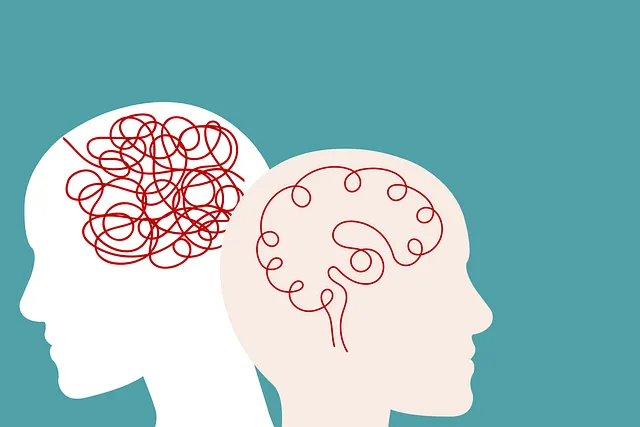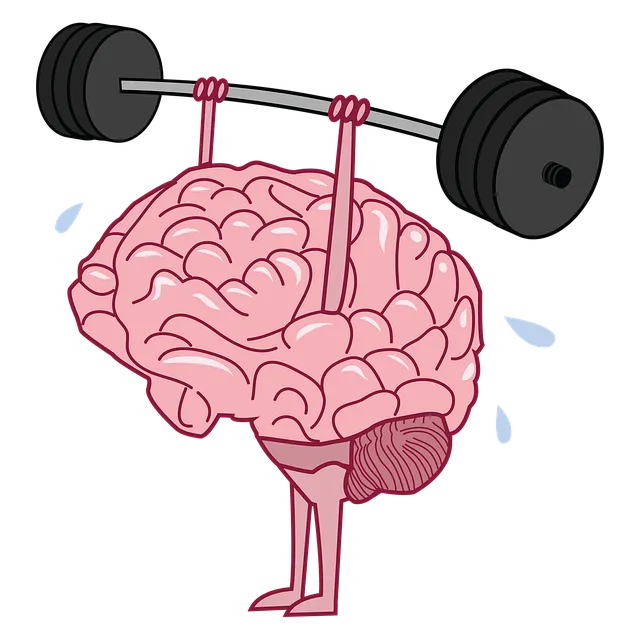Emotion regulation is a key skill for managing life's challenges, enhancing well-being, and building resilience. Kaiser Permanente in Boulder offers comprehensive mental health services, including evidence-based practices like stress reduction and mindfulness meditation, to promote emotional intelligence and reduce stigma around mental health issues. Through educational initiatives, they empower individuals to use techniques like deep breathing, journaling, self-care, and conflict resolution to effectively manage emotions and improve their overall quality of life.
Emotion regulation is a vital skill in navigating everyday life, influencing our relationships, decision-making, and overall well-being. In Boulder, where mental health support is readily available through organizations like Kaiser Permanente, understanding and teaching these techniques can significantly enhance quality of life. This article explores various aspects of emotion regulation, from its significance to practical strategies for professionals and individuals alike. Discover how techniques offered by Kaiser Permanente empower Boulder residents to manage emotions effectively.
- Understanding Emotion Regulation: Why It Matters in Everyday Life
- The Role of Kaiser Permanente in Mental Health Support in Boulder
- Techniques for Effective Emotion Regulation: A Comprehensive Overview
- Teaching Emotion Regulation Skills: Strategies for Professionals
- Integrating Emotion Regulation into Daily Routines: Tips for Practical Application
Understanding Emotion Regulation: Why It Matters in Everyday Life

Understanding emotion regulation is key to navigating life’s challenges effectively. It involves recognizing, accepting, and managing our emotional responses in healthy ways, ensuring they don’t overwhelm or control us. This skill matters greatly in everyday life, where we often face stressful situations, interpersonal interactions, and unexpected changes that can trigger intense emotions.
In the context of Boulder, where Kaiser Permanente offers mental health services, promoting emotion regulation has significant public health implications. By understanding and adopting techniques to manage emotions, individuals can improve their overall well-being, build resilience against stress, and foster healthier relationships. This is particularly relevant in today’s fast-paced world, where heightened public awareness campaigns around mental health encourage seeking support and developing coping strategies, including emotional intelligence, as essential tools for navigating life’s complexities.
The Role of Kaiser Permanente in Mental Health Support in Boulder

Kaiser Permanente plays a pivotal role in mental health support in Boulder, providing comprehensive services tailored to meet the diverse needs of the community. Known for its dedication to holistic wellness, Kaiser offers a wide range of programs designed to help individuals navigate and manage their mental health journeys effectively. Their approach integrates various evidence-based practices, including Stress Reduction Methods, to promote Mental Wellness among its members.
Through specialized clinics and dedicated professionals, Kaiser Permanente ensures accessible care for those seeking assistance with anxiety, depression, trauma, and other common mental health concerns. They also foster a supportive environment that encourages open conversations about mental wellness, reducing stigma and promoting early intervention. By combining cutting-edge treatments and compassionate care, Kaiser Permanente stands as a trusted resource for Stress Management in Boulder, contributing significantly to the overall well-being of the community.
Techniques for Effective Emotion Regulation: A Comprehensive Overview

At Kaiser Permanente, a leading healthcare provider in Boulder, understanding and managing emotions effectively is an integral part of their mental health services. They offer various techniques for emotional regulation to help individuals navigate and process their feelings in a healthy way. One powerful tool is mindfulness meditation, which has gained significant attention in recent years. This practice involves focusing on the present moment, observing thoughts and emotions without judgment, allowing individuals to gain perspective and respond rather than react impulsively.
Through public awareness campaigns and educational initiatives, Kaiser Permanente Boulder aims to promote emotional regulation as a life skill. They recognize that early intervention and teaching these techniques can significantly impact an individual’s overall well-being. By integrating mindfulness practices into their mental health services, they empower folks with the tools to manage stress, anxiety, and other emotional challenges effectively, fostering a more resilient and balanced lifestyle.
Teaching Emotion Regulation Skills: Strategies for Professionals

Teaching emotion regulation skills is a valuable aspect of mental health education programs designed by professionals. At Kaiser Permanente, Boulder’s mental health services play a pivotal role in empowering individuals to manage their emotions effectively. These services offer a range of strategies to help clients develop resilience and cope with life’s challenges. One effective approach involves teaching mindfulness techniques, such as deep breathing exercises and meditation, which enable individuals to stay grounded in the present moment and reduce impulsive reactions.
Incorporating positive thinking and confidence-boosting activities is another powerful strategy. By encouraging clients to challenge negative thought patterns and replacing them with more realistic, positive alternatives, professionals can help foster a sense of optimism and self-belief. Kaiser Permanente’s comprehensive Mental Health Education Programs are meticulously designed to address these aspects, ensuring individuals leave equipped with valuable tools for navigating their emotional landscapes.
Integrating Emotion Regulation into Daily Routines: Tips for Practical Application

Integrating emotion regulation into daily routines is a powerful tool for maintaining emotional well-being, especially when coupled with services like those offered by Kaiser Permanente in Boulder. Start by identifying specific triggers and patterns that lead to intense emotions. Once identified, incorporate practical techniques throughout your day. For instance, dedicated ‘time-outs’ during stressful periods allow individuals to pause, breathe, and reflect before reacting. Regular practice of mindfulness exercises or journaling can also serve as effective outlets for processing emotions.
Additionally, self-care practices such as consistent sleep patterns, balanced nutrition, and physical activity play a significant role in emotional regulation. Incorporating conflict resolution techniques, like active listening and empathetic communication, into interpersonal interactions further promotes emotional well-being. By seamlessly integrating these strategies into everyday life, individuals can better navigate challenging situations, ultimately enhancing their overall mental health and quality of life.
Emotion regulation is a vital skill that can significantly enhance our daily lives, as highlighted throughout this article. By understanding and implementing effective techniques, individuals can better navigate their emotional experiences. Kaiser Permanente’s role in supporting mental health in Boulder is commendable, offering valuable resources for those seeking assistance. Through comprehensive strategies and practical tips, professionals and individuals alike can teach and integrate emotion regulation skills into daily routines, fostering resilience and improved well-being.






